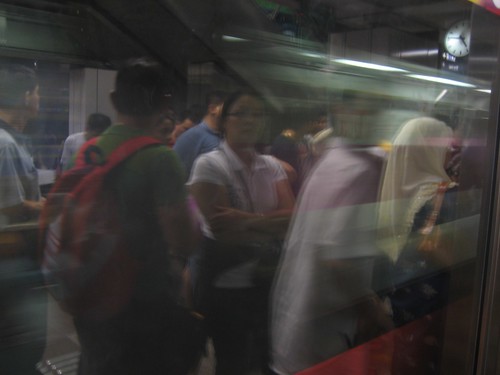
Commute time on the Singapore subway
The Guardian has recently has been publishing some terrific essays on the future of work. Peter Fleming’s piece earlier this week (and for that matter, his various other Guardian essays) turns out to have been just the start: it was followed by John Harris’ piece asking “What happens when the jobs dry up in the new world?” and now Andy Beckett’s long essay on “the radical idea of a world without jobs:”
Like an empire that has expanded too far, work may be both more powerful and more vulnerable than ever before. We know work’s multiplying problems intimately, but it feels impossible to solve them all. Is it time to start thinking of an alternative?
The piece is a high-altitude survey of the work of David Graeber, Benjamin Hunnicutt, Peter Fleming, and other writers who Beckett describes as
members of a loose, transatlantic network of thinkers who advocate a profoundly different future for western economies and societies, and also for poorer countries, where the crises of work and the threat to it from robots and climate change are, they argue, even greater. They call this future “post-work”.
I’m not sure how much of it I agree with– I still find psychological research on the value of work to be pretty compelling– but as someone who’s written about the need to recognize the value of rest, I’m definitely intrigued by this literature. Anyway, the Beckett essay is well worth reading, especially if this literature isn’t yet familiar.